When it comes to building or buying a bookshelf, choosing the right wood is crucial. The wood you select will not only determine the durability and strength of your bookshelf but also its aesthetic appeal and how well it complements the rest of your decor. So, what is the best wood for a bookshelf? Let’s explore some of the top choices and factors to consider.
1. Factors to Consider When Choosing Wood for a Bookshelf
Before diving into specific types of wood, it's essential to understand the key factors that should influence your decision:
- Durability: Bookshelves often bear a lot of weight, especially if you have a large collection of books. The wood needs to be strong enough to support the weight without sagging over time.
- Aesthetics: The appearance of the wood, including its grain, color, and texture, plays a significant role in how your bookshelf will look.
- Workability: Some woods are easier to cut, shape, and finish than others. This is especially important if you’re planning a DIY project.
- Cost: The price of wood varies greatly depending on its type and quality. Balancing cost with durability and appearance is key.

2. Top Wood Choices for Bookshelves
Here are some of the best woods that are commonly used for making bookshelves:

- Oak: Oak is one of the most popular choices for bookshelves due to its strength and durability. It has a beautiful grain and can be stained in various shades to match your decor. Oak is perfect for those who want a classic, timeless look.
- Pine: Pine is a softwood, which makes it easier to work with and more affordable. However, it’s less durable than hardwoods like oak and may not hold up as well under heavy loads. Pine is a good option if you’re on a budget or prefer a rustic or country-style bookshelf.
- Maple: Maple is a dense, strong hardwood that is highly resistant to wear and tear. It has a smooth, fine grain that gives a sleek, modern appearance to any bookshelf. Maple is often used in high-end furniture due to its durability and clean look.
- Cherry: Cherry wood is known for its rich, reddish-brown color and smooth grain. It’s a hardwood that’s not only beautiful but also very strong. Over time, cherry wood darkens, adding character and warmth to your bookshelf.
- Walnut: If you’re looking for a luxurious wood, walnut is an excellent choice. It has a deep, rich color and a straight grain that adds elegance to any piece of furniture. Walnut is strong and durable but comes at a higher price point.
- Birch: Birch is a versatile wood with a fine grain that can be easily stained or painted. It’s less expensive than some other hardwoods but still offers good durability. Birch is ideal if you want a clean, modern look at a reasonable cost.
- Mahogany: Mahogany is a premium hardwood known for its durability and resistance to warping. It has a rich, reddish-brown color and a straight, fine grain. Mahogany bookshelves are often seen as high-end and add a touch of elegance to any room.

If you’re particularly interested in space-saving designs, you might want to explore Wood Corner Bookshelves to see how different types of wood can be used in unique and functional ways. These designs can make the most of your available space while providing a stylish look.
3. Best Wood for Specific Needs
Depending on your specific needs, certain woods may be better suited for your bookshelf:
- For Heavy Books: If your bookshelf will hold heavy volumes, opt for hardwoods like Oak, Maple, or Walnut, which offer superior strength and resistance to sagging.
- For Decorative Shelving: If aesthetics are your main concern, Cherry or Walnut are excellent choices due to their rich colors and beautiful grains.
- For Budget-Friendly Options: Pine and Birch provide a good balance of affordability and appearance, making them great for those on a budget.

For more inspiration on how to use these types of wood in different designs, check out our Wood Bookshelf Ideas article. It’s packed with creative concepts that can help you decide on the perfect look for your home.
4. How to Maintain Your Wooden Bookshelf
To ensure your bookshelf lasts for years, it’s important to care for the wood properly:
- Finishing: Applying a finish, such as varnish, oil, or wax, can protect the wood from moisture and wear. This not only preserves the wood but also enhances its natural beauty.
- Regular Dusting: Keep your bookshelf dust-free by wiping it down regularly with a soft cloth. This prevents dust from settling into the grain and keeps the wood looking fresh.
- Avoid Direct Sunlight: Prolonged exposure to sunlight can cause wood to fade or warp. Place your bookshelf away from direct sunlight to maintain its appearance.

Buy now: Tree Branch Standing Driftwood Shelf SINLTB047
5. Conclusion
Choosing the best wood for your bookshelf depends on a variety of factors, including durability, aesthetics, and cost. Hardwoods like Oak, Maple, and Cherry are excellent choices for a strong and beautiful bookshelf, while Pine and Birch offer more affordable options. By considering your specific needs and preferences, you can select the perfect wood to create a bookshelf that will serve you well for years to come.
It's simpler when you want to choose a tree bookshelf, just state your wishes and let Spry Interior take care of the rest.


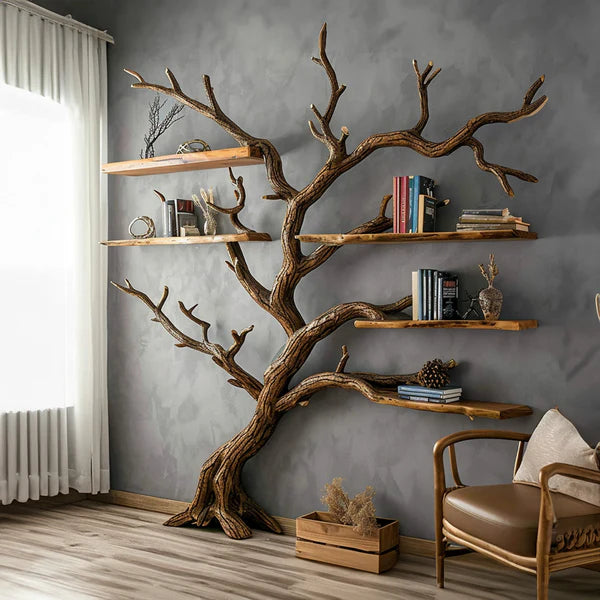
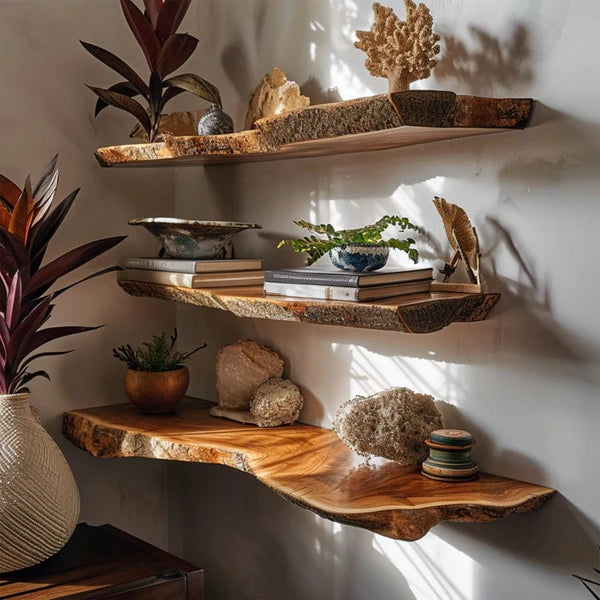
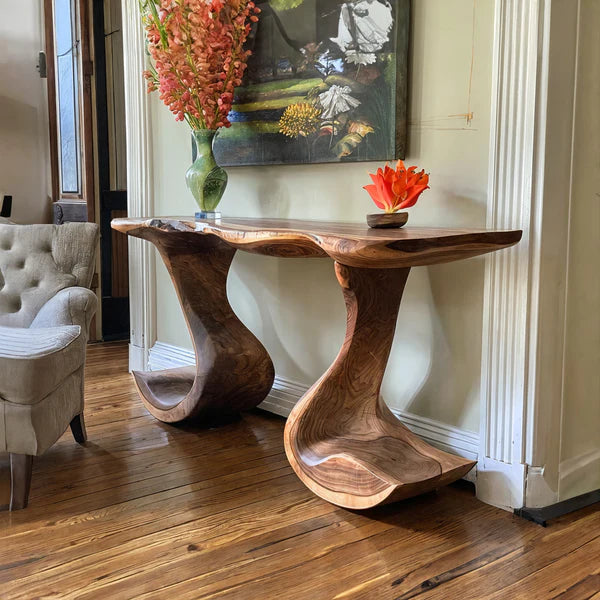

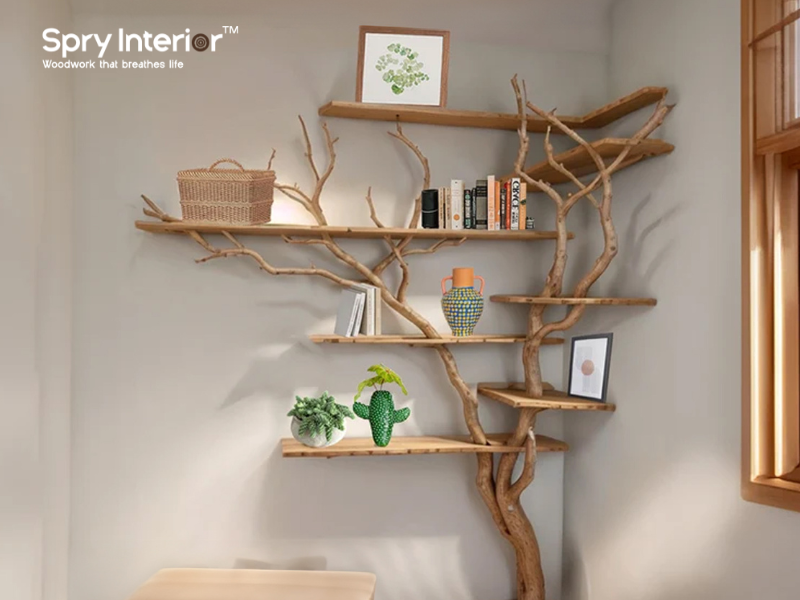
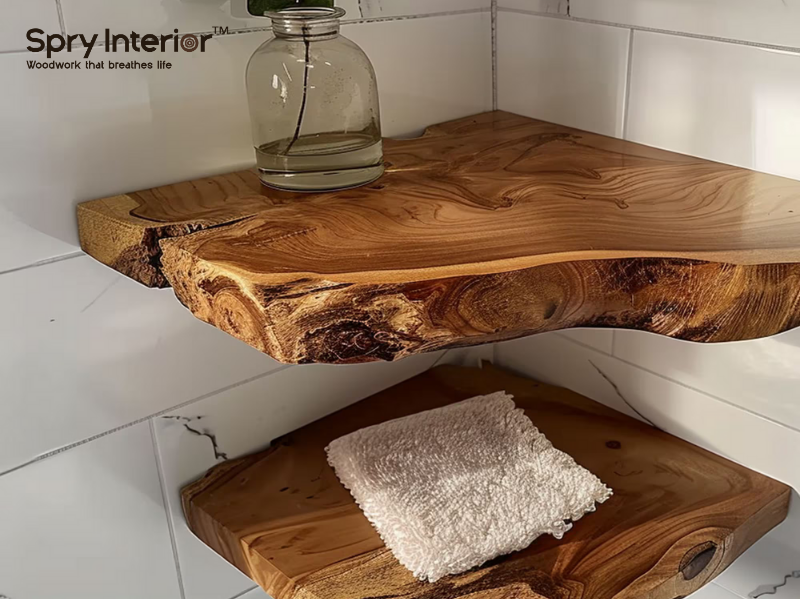
Leave a comment
This site is protected by hCaptcha and the hCaptcha Privacy Policy and Terms of Service apply.